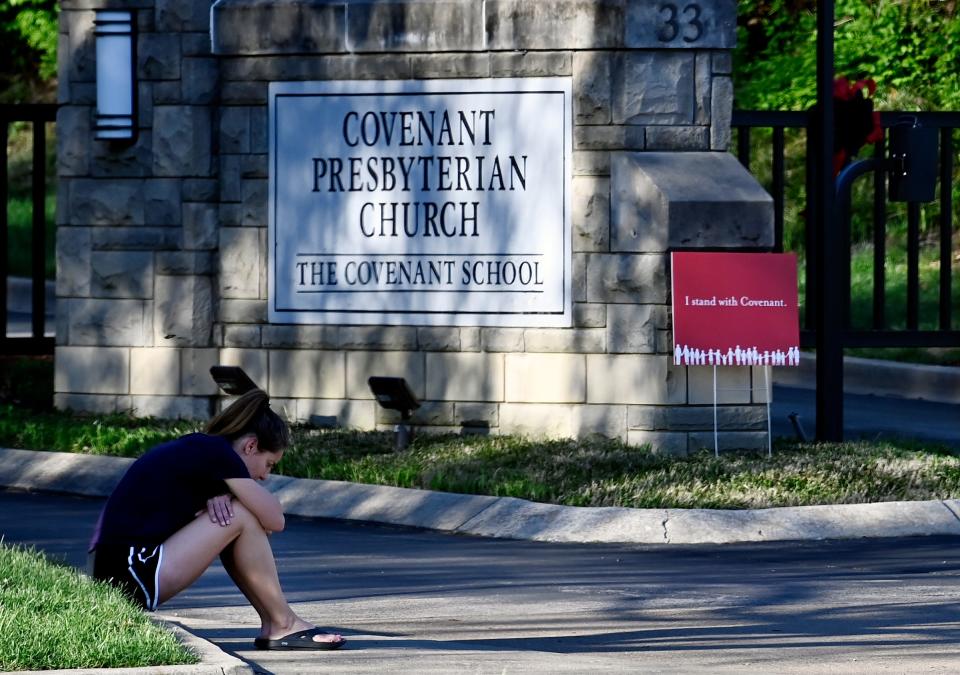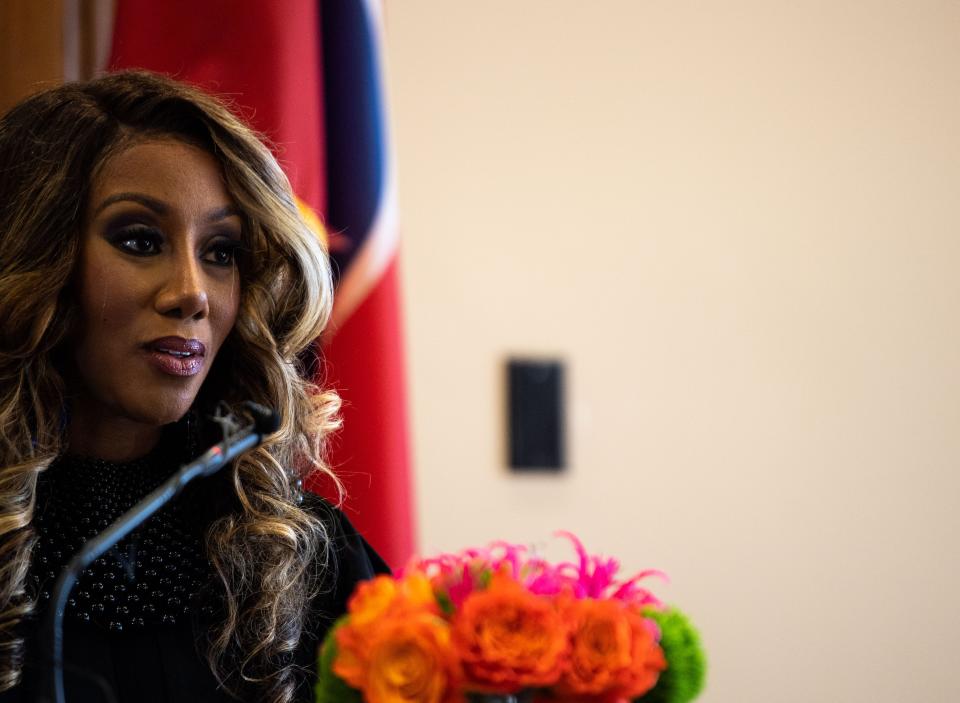Covenant school shooter's writings won't be released publicly, judge rules
Editor’s note: This story contains some descriptions and references to gun violence against children.
The writings of a shooter who killed three adults and three children at Nashville's Covenant School last year cannot be publicly released, a judge has ruled in a victory for families of the victims who said the records could inspire copycats.
The decision handed down late Thursday night hinged on an unconventional legal theory: that the families themselves held a copyright to the writings, and they should not be treated like public records. Ownership of the writings was transferred to the victims' families by the shooter's parents last year.
"School shootings and violence have unfortunately become commonplace in our society," Chancellor I'Ashea Myles wrote in the ruling. "Access to immediate information has also become a societal expectation which we all share.
"However, there are occasions when this immediate access to and demand for information must be balanced and moderated to safeguard the integrity of our legal system, particularly the criminal legal system."
The decision comes more than 14 months after several groups sued for access to documents withheld by Metro Nashville in the aftermath of the shooting. It is expected that at least one of the plaintiffs that sued seeking the records will appeal.
In statements provided through an attorney representing Covenant School families, the families of the six victims said they hope denying the release of the records, particularly the shooter's writings, will prevent copycat crimes and protect them from additional trauma.
At an April hearing over the records, Eric Osborne, the parents’ lawyer, read a statement from one of the parents of a child killed in the shooting: "May this evil die with the shooter."
On March 27, 2023, a former student entered the Covenant School in Nashville and shot and killed six people, including three third graders. They were 9-year-olds Evelyn Dieckhaus, William Kinney and Hallie Scruggs; headmaster Katherine Koonce; custodian Mike Hill; and substitute teacher Cynthia Peak.

Some records may still be released after long legal fight
In the days and weeks after the shooting, reporters and others requested certain records related to the shooting. Nashville police denied many of those requests.
In response, six groups, including The Tennessean, part of the USA TODAY Network, sued Metro Nashville about a month after the shooting. They sought a court order to grant them access to several different records, most notably a pair of journals found in the shooter’s home and car, which was parked at the school.
The legal battle that followed has been complex and emotional, and pitted groups who wanted the records against Covenant School families. Along the way, some writings were leaked and published by a conservative media personality.
Timeline: The Covenant School shooting and the dramatic year that followed
The transfer of the ownership of the shooter's writings made the case all the more unique, and Myles acknowledged the legal theory over copyright was "novel." Myles, who wrote she spent “countless hours” reviewing nearly two terabytes of materials relevant to the case, also said she was persuaded that the release of some materials could inspire copycat attacks at other schools.
The judge said the shooter “studied the plans, writings and video content, inclusive of news coverage footage, of past assailants” and idolized them and even mimicked some “not only in their methodology, but also choice of weapons and targets.”
She wrote that the release of those materials would violate the school security exception to the Tennessee Public Records Act.
Some records created by police may still be made public once the Metro Nashville Police Department's investigation into the shooting and collateral criminal cases are done, Myles' ruling indicates.
Metro Legal Director Wally Dietz said in a written statement that when police conclude their investigation, records in the investigative file, "other than the shooter's writings and records related to school safety or other statutory exceptions, will be released."
Any records released under Myles' ruling must not have been created by the shooter or threaten school security directly or by potentially inspiring "copycat" crimes.
In seeking the records, The Tennessean has cited an interest in bringing to light "additional facts regarding this incident, societal and mental health issues, and issues regarding firearms more broadly, which have not yet been revealed through other means," according to the newspaper's complaint.
The records requested by The Tennessean are the documents in the shooter's possession prior to death, including those in the shooter's car and home; all police reports of the shooter in MNPD's possession; all calls for service to the Covenant School and the shooter's home from the past five years; and incident reports from MNPD's responses to the shooter's home on March 27.
The Tennessean has no plans to publish the writings verbatim and has sought to center coverage on public policy, the victims and the community.
Ruling could have impact on future cases over release of records
Dietz, the Metro legal director, praised Myles' ruling on a case that he said presented important issues "some of which are cases of first impression."

"Chancellor Myles issued a well-crafted ruling that will likely be cited by courts around the country," Dietz wrote.
Deborah Fisher, executive director of the Tennessee Coalition for Open Government, said if the ruling stands after any possible appeals, she thinks it will mean less access to police records.
"It will allow more ways to keep police records confidential," Fisher said, adding that granting copyright as an exception to public records law "opens the door" for criminals to keep more records confidential.
"And I think the public has an interest in police transparency and justice," Fisher said.
Evan Mealins is the justice reporter for The Tennessean. Contact him at emealins@gannett.com or follow him on X, formerly known as Twitter, @EvanMealins.
This article originally appeared on Nashville Tennessean: Covenant elementary school shooter’s writings won't be released

